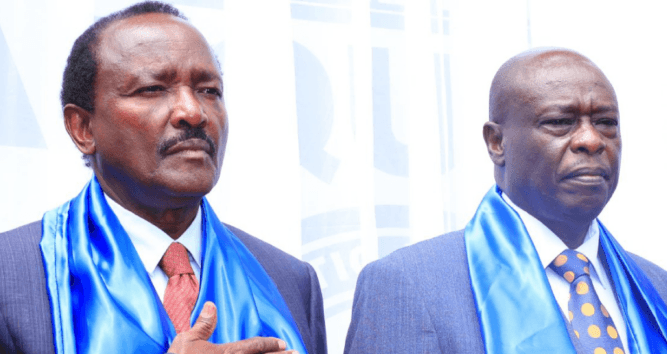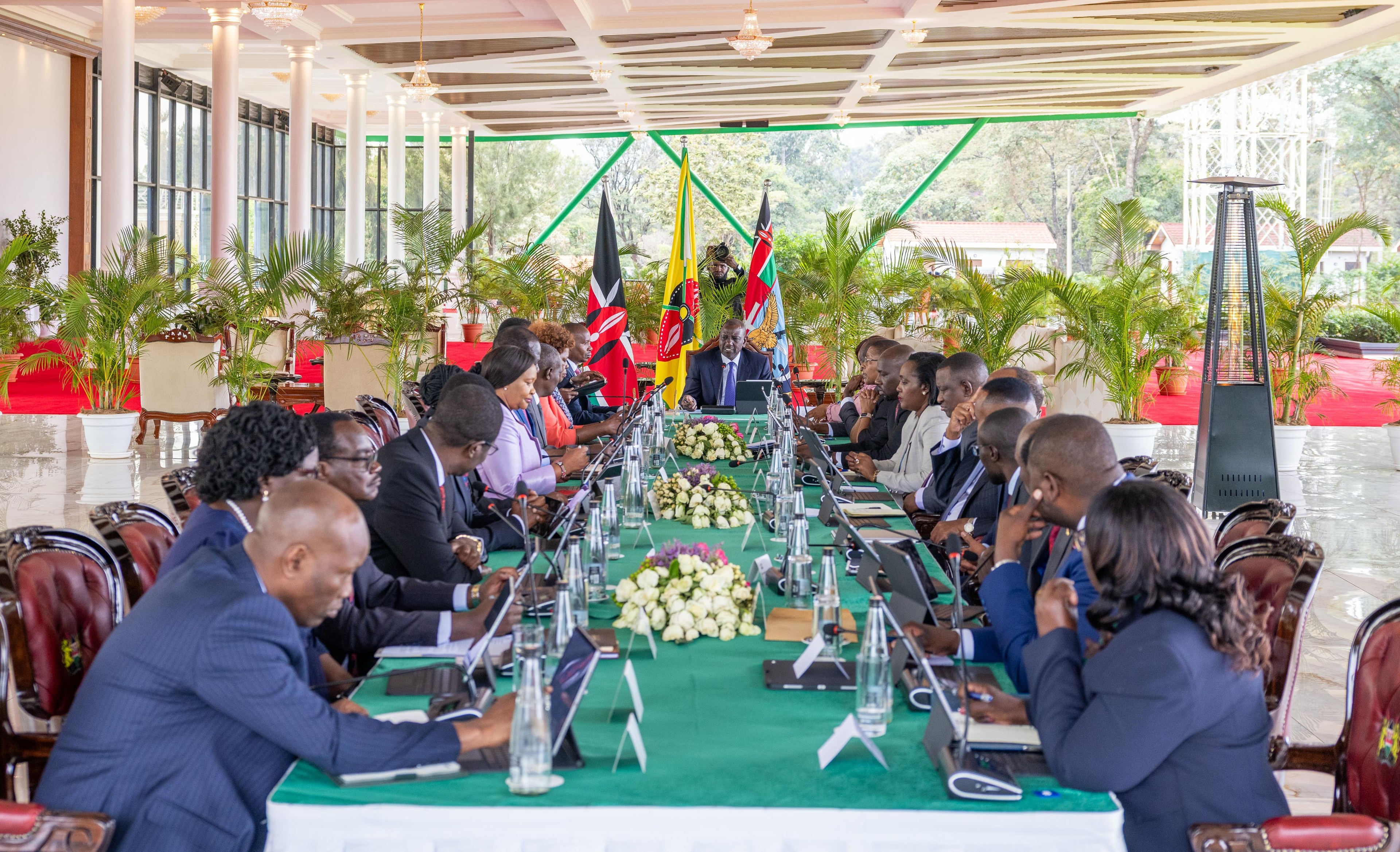The opening of a molecular imaging centre by President Uhuru makes the Kenyatta University Teaching, Referral and Research Hospital Kenya’s leading facility in cancer treatment.
The hospital plans to double bed capacity to 1,200 within 10 years. A new 300-bed children’s hospital is already being built within the 100-acre compound.
KUTRRH was conceptualised in 2006 through the leadership of former Kenyatta University vice chancellor Prof Olive Mugenda, who now chair’s the hospital’s board of directors.
Construction started in 2011 and it was officially opened on September 10, 2020.
Prof Mugenda spoke to John Muchangi and Michael Muma about the future of the facility.
Where did the inspiration for such a hospital come from?
The idea came from my studies in the United States, where a lot of hospitals are associated with universities and represent the best hospitals. And I kept saying, if I ever get a chance to be in a leadership position, that is something I would like to implement. So when I became a vice chancellor [at Kenyatta University] years later, I thought that was a time to put forth the idea, which was then approved by the university council. We started looking for funding, and eventually got the funding.
Does KUTRRH as-is represent the hospital you first conceptualised?
I had in mind a hospital with some affiliation with universities, which we still do, because we are a research institution. And the reason for that is because no matter when the doctors do their work, I always find it fascinating if they're actually using data that is very current. So if they are prescribing medicine, they are talking about a paper that came out yesterday talking about a certain medicine. So for this, I kept thinking that we need to have a hospital, which is very much associated with universities. And since I was in KU as a VC, I thought that would be the best opportunity to do it.
Was there opposition to your idea?
For every good idea, there's always some kind of opposition. People don't have the same vision. That was 2006 when we started thinking about this idea. So you can imagine the hospital was going to cost Sh8 billion and yet the capitation for the university was Sh1.5 billion. People were asking, is this idea going to work? If we don't have enough money for the university, where will you get it to build the hospital? But I was able to convince my colleagues we needed to dream big, and then look for the money. I even told them we can do it in phases, maybe phase one, phase two, phase three. But we are lucky that we got the money and did the whole project.
How did you finance it?
This is government-funded in the sense that we went through a competitive process. The government called for several proposals. I remember there were like 40 proposals and we also put in ours. So, I think we were able to satisfy all the conditions and the project was funded through the Government of China. So it is a government to government funding.
We envisaged a 650-bed hospital and that is what is here. We envisaged a research hospital with research facilities and accommodation, and that's what we have. The only thing we didn't achieve from the original project is the student hostels. That time this was not a big deal because we had hostels from KU, which we had completed. Everything else is as we envisaged. We have the research facility, the funeral home, and the hospital with all the specialisations.
How is managing such an institution different from managing the university?
Of course, the first difference is that I'm not the CEO. At the university, I was the CEO. Here I am the chairman of the board. However, given my involvement with the hospital and the vision, and given that it's a new institution, I kind of do more than just a chair. I'm able to guide the CEO and the management in a lot of things. I had the history, I had the vision. So my involvement is a little more than an ordinary chair would be involved.
Tell us about the new molecular imaging centre opened by President Uhuru.
This is the major distinguishing factor between this hospital and other hospitals. There's no other public institution that has a PET/CT Scan machine. There's no other public institution with the mega cyclotron machine that we have. Cyclotron produces the consumables that are used in the PET/CT scan. Except for the cyclotron in Aga Khan [university teaching hospital], the only other cyclotron was in South Africa and North Africa.
And therefore, we could not then buy the PET/ CT scan machines because then we didn't have the consumables. But right now we have the consumables because of the cyclotron, which means we can now operate our PET/CT scan machines. Most importantly, public hospitals in Kenya and the region that now want to buy the PET CT scan machines can buy them because we can always supply them with it with the consumables. So that is really the big impact of this facility.
PET scans are particularly helpful for investigating confirmed cases of cancer to determine how far the cancer has spread and how well it's responding to treatment.
PET/CT scans cost about Sh70,000 in a private hospital. What are your costs?
It's a little cheaper than the private hospitals. But most importantly, we also made sure that it's fully covered by NHIF. It has been the wish of the President that this facility is accessible to Kenyans and we made sure that is what will happen. The machine is already operational.
This was founded as a university hospital, what prompted the decision to make it a parastatal?
The original vision was to have a hospital that is associated with the university. But that does not mean it has to be run by the university. It's very difficult to run both. And I have done both now and I noticed you cannot run a university, and also run the hospital, it is very difficult. In hospitals, the decision-making process needs to be very fast. It's more efficient when you have a separate board and a separate management. And that would not have happened if it was run by the university.
So that separation was good. But that does not remove the original purpose of affiliating the hospital with universities. In fact, if you look at the legal order, we are mandated to work with KU, and also other universities, and research institutions. So that vision is still there. The only thing that is different is management as a parastatal which, to me, is more efficient, and quicker in terms of decision making.
And is there a downside to that?
I don't think so. Right now we are able to work with many universities and other research institutions. It's even better because we have that flexibility. For instance, now we have a very important MoU with the University of Manchester, and also the Christie Foundation Trust, a leading expert in cancer care, education and research-based in Manchester. At the same time, we have an MoU with other institutions, including public universities in Kenya. So I think there is more flexibility.
But why don’t KU medical students study in this hospital?
It's a good question and they should come here. We have a committee made up of colleagues from this hospital and also from KU, who have been meeting to get the modalities of how the students should come. I really would want them to start coming even tomorrow. They would also help us in terms of manpower and it's part of our mandate. So it's just that that committee needs to finalise the procedures, the modality, so the students can come even tomorrow. That was part of my vision, that you can have the students come. We already have some students coming from other institutions. So hopefully the KU students can start anytime, as soon as that committee completes the modalities.
How will the future of this university hospital be like?
We have just done a very good strategic plan. The original plan was to have a children hospital. It actually has started. We just need to look for funding to complete it. It is a 300-bed children hospital. Hopefully in the next two, three years, we should have that hospital. Our future plan is also to have centres of excellence in oncology. The first on the list is breast cancer centre, then move to other cancers. Also, in our strategic plan, we plan to have a women’s hospital in the future. So we hope in 10 years KUTRRH will be like a hub.
We are already a medical innovation centre. We want to encourage our medical students and even doctors to come up with innovative products that we can incubate and accelerate in the future. We also feel that we should be involved in clinical trials, we should be doing research that informs our doctors in terms of treatment and diagnosis. So we are really we are very ambitious. In ten years we need to double the bed capacity to 1,200 beds.
You are also a commissioner with the Judicial Service Commission, chancellor at KCA University, chair of the Housing Finance (HF) Group and also lecture at KU. How do you how is your day like?
I'm very grateful to His Excellency for some of the appointments. These are part-time jobs. The JSC is a very busy commission, but it's a part-time commission. This chairmanship is also busy, but also part-time time. The chancellorship is, you know, also a part-time thing. We advise the university, we confer degrees and all that. I am able to organise my time without feeling overworked, so I'm able to manage quite comfortably.
What do you do to relax?
When I’m free time I can read a book. As you know, I also write books. I don't do sports, and maybe I should start. Well, I do my own exercises. I am in an exercise programme, which is good. But I'm not really one of those very rigorous sportspeople.
And I like listening to music.
Do you have any political aspirations?
No, not at all! I'm not politically inclined. I've been approached by many people to run for (Kiambu) governor. But to be honest, I'm not interested.
Edited by T Jalio














